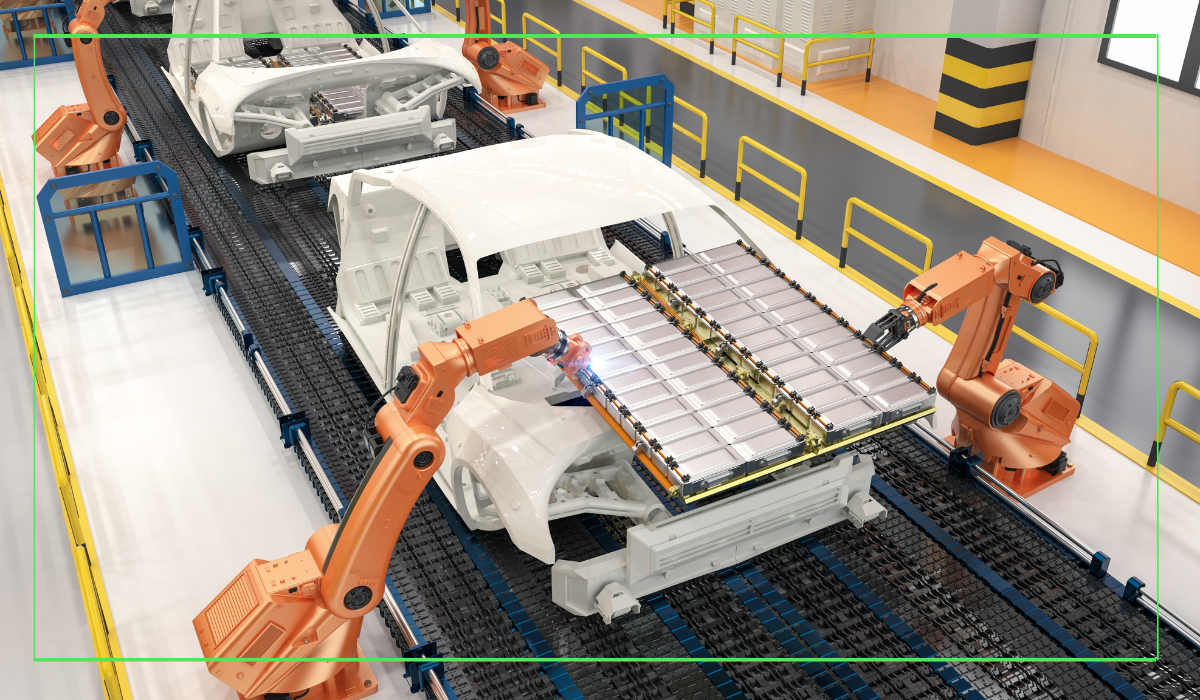EV Lithium Batteries – Are Yours Stored Safely?
Some Things to Consider.
Running a business often feels like managing a perpetual set of challenges brought about by a perennial array of changing conditions. This is no different for manufacturers and constructors in the automotive sector whose existence depends on the safe and efficient delivery of their products to market. Events and conditions often conspire to making this core mission extremely difficult.
The safe storage of lithium batteries is one such area where the evolution of the product is moving faster than the accompanying legislation. It therefore falls to us to manage this ourselves. Even new batteries, awaiting call-off for installation in new vehicles and warranty can be unstable. Before delivery to your warehouse, they may have travelled thousands of miles, passed through several carriers, agents and individuals and in doing so they may be damaged. Sitting on warehouse shelves all over the UK are thousands of new batteries alongside other stock and staff. Are they safe?
Consider the environment in which they’re stored:
- What measures are in place to prevent battery damage occurring in the first place?
- Do you know the provenance of the batteries?
- Have they been exposed to any of the key causes of thermal runaway, namely: overcharging, overheating, crushing, penetration and short-circuits?
- What measures do you take to detect early signs of thermal runaway?
- What would you do with a battery that was heating up?
- Do you have a quarantine procedure alongside other emergency protocols?
- Does your local Fire Service know what actions to take in the event of a Li-ion fire?

If the worst happened, thermal runaway is likely to cause huge volumes of smoke, an explosion and fire. What impact would that have?
- Are you near a road, other neighbouring businesses or residential areas?
- Where’s the nearest gas main?
- How much stock are you carrying alongside batteries? What would be lost?
- How long would that set back production?
- Does your insurer know you’re storing batteries?
- Would they reduce their premium if you had a separate, monitored, insured facility for batteries away from all other staff and stock?
Whilst not meant to cause alarm, the issues surrounding the safe storage of batteries is a problem that we all know is out there but many are ‘sweeping under the carpet’. Sensible, preventative action taken now will prevent catastrophic failures further down the line. Damage to stock, property, production, reputation and most importantly, people can be avoided.
At BSB Warehouse we can help you mitigate the risk of battery storage, reduce insurance premiums and ensure that if the worst were to happen, you are still in business. We have dedicated warehouses designed specifically to house new Lithium-ion batteries for Auto OEMs, constructors and manufacturers.
Every battery is thermally monitored 24/7 by an array of systems that give the earliest possible warning of an unstable item. If a problem develops at any time of day or night we can remove that item into a quarantine area for further monitoring and treatment. The CCTV systems ensure further security and we offer insurance on all stock, if required. Call-off is fast and efficient and as a fully flexible business we are happy to tailor our services to your requirements.
If you want to sleep well at night why not give us a ring knowing that your batteries are safe:
+44 (0)7540 815665.
info@bsbwarehouse.com
www.bsbwarehouse.com
Discover how BSB Warehouse is transforming the landscape for the safe warehousing of new lithium ion batteries by providing a cutting-edge storage solution. Watch our video now and take the first step toward a more efficient and safer tomorrow.
https://www.youtube.com/watch?v=0WsjGVO_FSc
Email us at: info@bsbwarehouse.com





